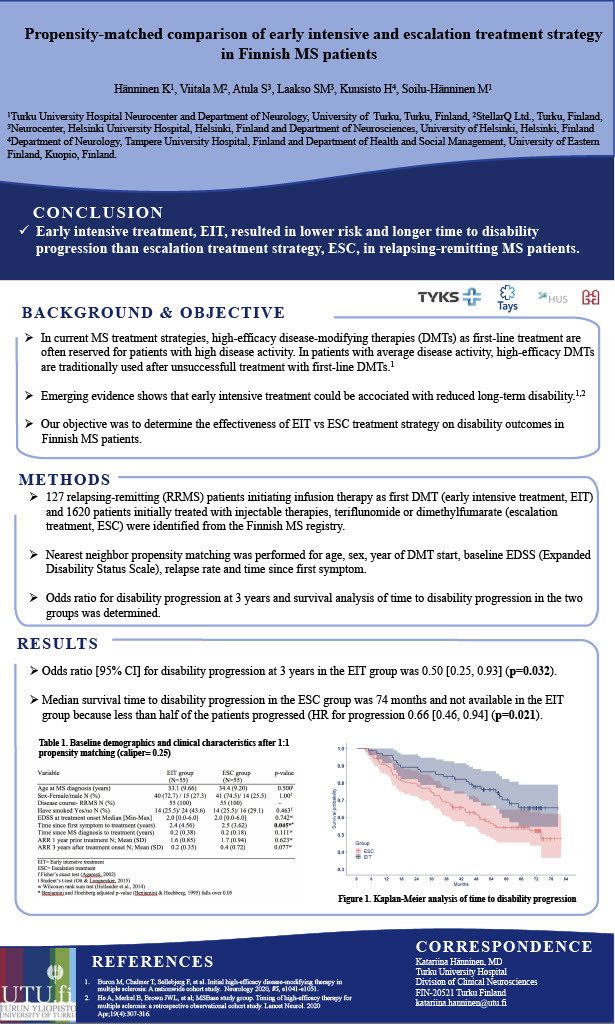Propensity-matched comparison of early intensive and escalation treatment strategy in Finnish MS patients
Abstract
Objective:
To compare early intensive (EIT) and escalation (ESC) treatment in Finnish MS patients.
Methods: A total of 127 MS patients who initiated infusion therapy as first disease modifying therapy (DMT) within 3 years of relapsing MS diagnosis (EIT group) and 1620 patients initially treated with injectable therapies, teriflunomide or dimethylfumarate (ESC group), were identified from four hospital districts. Nearest neighbor propensity matching was performed for age, sex, year of DMT start, baseline EDSS, relapse rate and
time since first symptom. Odds ratio for disability progression at 3 years and survival analysis of time to disability progression in the two groups was determined. Disability progression was defined by a 1.5 point increase from baseline EDSS of 0; 1 point increase for baseline 1 to 5 and 0.5 increase for baseline >5.
Results:
After 1:1 propensity matching, 55 patients were included in the EIT group and 55 in the ESC group. Mean age at MS diagnosis was 33.1 years in the EIT group and 34.4 in the ESC group and mean time since first symptom to treatment was 2.4 years and 2.5 years, respectively. In the EIT group, 43 patients were treated with natalizumab, 3 with rituximab and 9 with alemtuzumab. In the ESC group, 40 patients were treated with
injectables, 9 with dimethylfumarate and 6 with teriflunomide. Median EDSS score at baseline was 2.0 (range 0-6.0) in both groups. Odds ratio [95% CI] for disability progression at 3 years in the EIT group was 0.50 [0.25, 0.93] (p=0.032). Median survival time to disability progression in the ESC group was 74 months and not available in the EIT group because less than half of the patients progressed (HR for progression 0.66 [0.46, 0.94] (p=0.021).
Conclusions:
EIT resulted in lower risk and longer time to disability progression than ESC strategy.

